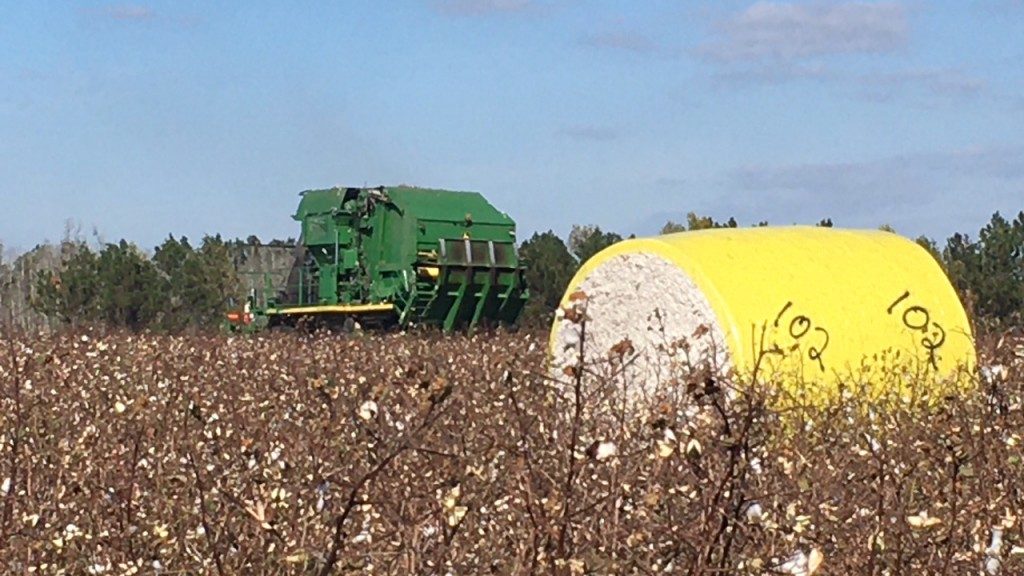Jeremy Kichler
-
The Tri-State Climate Meeting has moved to a virtual format. If you are interested, please plan to join the virtual meeting on Aug 27, 2021 beginning at 9am. Below is the agenda and other pertinent info about this meeting. If you have any questions please contact your local county Extension agent.
-
Aug 19, 2021 | Written by Lenny Wells Now that Pawnees have shell hardened and we approach shell hardening on most other varieties in the next week, it is time to start thinking seriously about managing stink bugs and weevils. Prior to shell hardening these pests simply knock nuts off the trees as they feed or lay eggs.…
-
Looking ahead over the next week to 10 days, the forecast is for warmer temperatures and high humidity. This will create very favorable conditions for white mold and leaf spot on peanut- your growers must get after it in the fields. We will likely see more areolate mildew and target spot on cotton. Got areolate…
-
Cattlemen and hay producers need to watch for armyworms in their hayfields and pastures. I have received a few questions about controlling this pest from local hay producers. The life cycle of an armyworm is interesting. Armyworms cannot tolerate the winters in Georgia. The moths migrate from Florida, south Texas, and South American each spring…
Posted in: Hay & Forages -
Rain, rain , rain.. The table below shows the rainfall totals at the Sunbelt Ag Expo recorded by the UGA Weather Station from July 1 to July 22. This location has accumulated 11.27 inches of rainfall and it has rained 16 out of the last 22 days. Rain Delays and Weed Control (Prostko) Recent rains…
-
Scab A few words from Lenny Wells on the scab situation. As you all know, this has been an almost apocalyptic year for scab. Most areas in the state have seen almost daily rainfall for the last month or more. This comes at the worst possible time for pecan scab—the nut sizing period. The worst…
Posted in: Pecans -
The recent rainfall in Colquitt County has caused mushrooms to appear in turf, mulch, and landscape beds. Mushrooms usually appear when rain follows extended dry periods. Not only are mushrooms concerning due to their unsightly presence, but some types are known to be toxic to children and animals. People should never eat unidentified mushrooms that…
-
The rain over the last few days have made row crop production a challenge. The cotton crop is ranging from squaring to fourth week of bloom. Corn crop is ranging from late dough to 3/4 milk line and peanut growers are trying to apply soil borne fungicides. Questions include What about using sulfur with my…
-
A few words from Dr. Bob Kemerait, UGA Plant Pathologist on the current disease situation. Greetings: Peanut: Many of our peanut fields have reached, or are rapidly approaching, 60 days after planting. During this time of the season it is important to protect a peanut crop from white mold and from leaf spot diseases. Currently,…
Posted in: Peanuts -
Below is a blog post from Dr. Lenny Wells about the rain fastness of pecan fungicides. It is from the UGA Pecan Blog . Jul 12, 2021 | Written by Lenny Wells Much of the following is a post from 2017 but timely for our situation at the moment: Pecan scab is enjoying ideal weather in much of…
Posted in: Pecans
